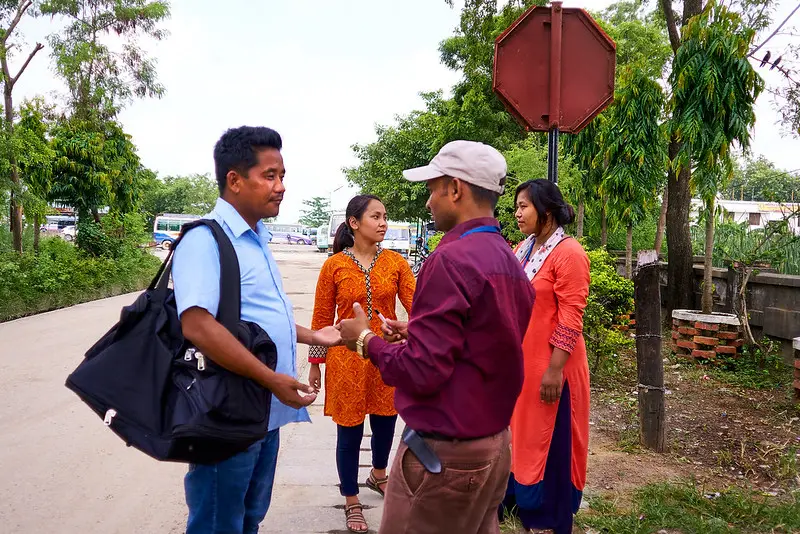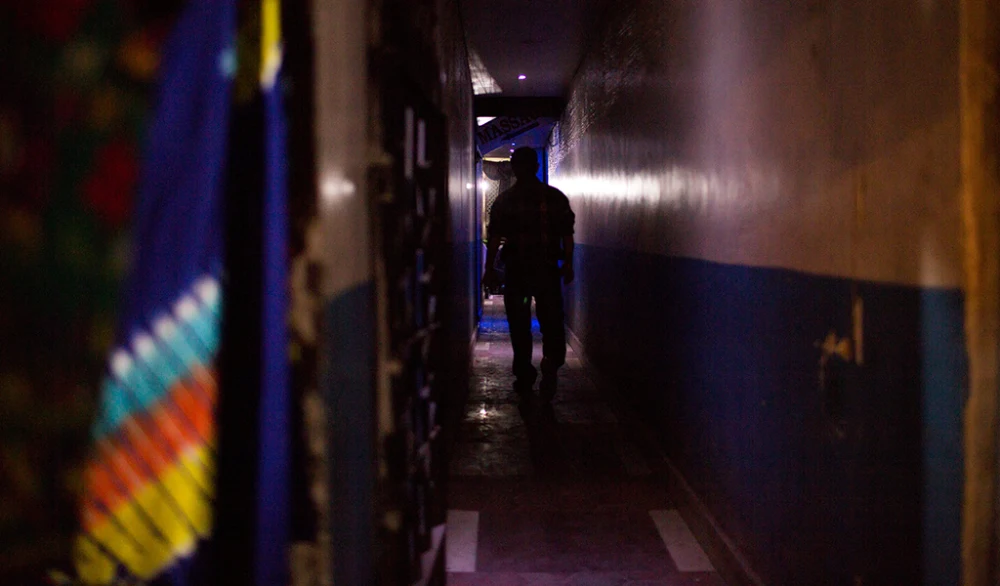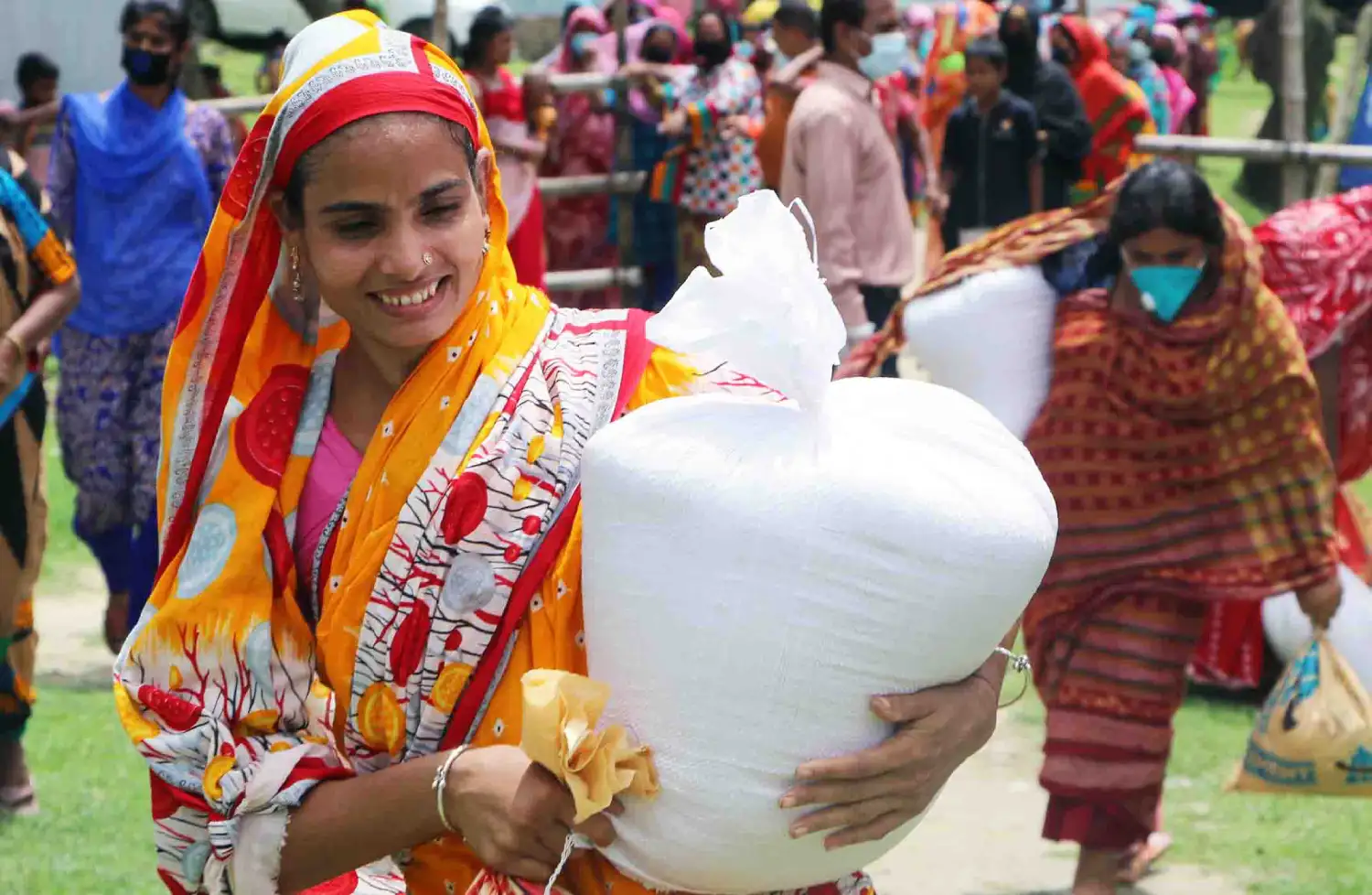Bangladesh
Bangladesh
Present-day Bangladesh only established borders in 1947 when British colonial rule ended. It became an independent nation in 1971 after breaking away from Pakistan in the Bangladesh Liberation War. Before that, its history is woven together with that of surrounding South Asian nations and empires, featuring struggles between Buddhist, Hindu, and Muslim dynasties. Bangladesh is a developing country with dense rural villages, ranking 129 out of 191 countries in the UN Human Development Index report from 2021. Although it has become more industrialized in recent years, nearly half the population still works in the agricultural sector.
Since its inception in 2006, LJI Bangladesh has intercepted more than 2,400 individuals to prevent them from being trafficked.
2006
Love Justice Bangladesh is established with the opening of a family home.
2014
Love Justice Bangladesh has its first interception, which is also the first interception for the organization outside of Nepal. This proves that transit monitoring can work beyond Nepal, and we begin eyeing other countries for future expansion.
2020
Our teams on the ground in Bangladesh distribute food and basic essentials to more than 19,000 of those most starving due to the COVID-19 pandemic and its subsequent lockdowns.
2023
Love Justice Bangladesh has grown to four transit monitoring stations and 21 staff members.

Watch to hear how our transit monitoring teams in Bangladesh cared for women and families trapped in the sex industry.
Stories from LJI Bangladesh
Human Trafficking in Bangladesh
- The Global Slavery Index (GSI) estimates that there are 1.2 million people living in slavery in Bangladesh. This makes it fall into the category of top-ten countries with the highest total numbers of human trafficking.
- The U.S. Department of State categorized Bangladesh on Tier 2 Watch List in their 2023 Trafficking in Persons Report, indicating that the Bangladesh government is working to eliminate human trafficking in their country but as of yet does not meet the minimum standards necessary to accomplish that.
- Despite high prevalence of trafficking and Tier 2 status, Bangladesh has one of the strongest government responses among countries in the Asia Pacific region, taking more action than wealthier neighboring nations, according to GSI.
- The Bangladesh government collaborated with the UNODC to conduct its first national study on human trafficking in the country in 2022.
- The populations most vulnerable to human trafficking are the poor and marginalized, victims of child marriage and gender-based violence, people who lost jobs during the pandemic, seasonal laborers, poorly educated youth, people displaced due to climate change, Rohingya refugees, and immigrants.
- Bangladesh is home to the Kutupalong-Balukhali settlement, the largest refugee camp in the world. This settlement, located in the southeastern part of the country, registered 866,457 Rohingya refugees by the end of 2020. Refugees are at higher risk of being trafficked because they lack the protection and access to basic services (health, education, etc.,) that citizens have.
- Bangladesh has some of the highest rates of child marriage in the world with 38 million child brides—15 million of which were married before the age of 15.
- Bangladesh faces regular climate-induced natural disasters (tropical cyclones, flooding, landslides, and drought) that cause significant loss and displacement. In 2020, 4.4 million people were displaced from their homes when Cyclone Amphan hit. Any population uprooted from their community is at increased risk of being trafficked.
- Men and boys in rural coastal villages are commonly trafficked for labor in the fishing and shipping industry, while women and girls in urban areas are commonly trafficked for sex.
Where We Work
Our core work is currently based in Nepal, India, Bangladesh, South Africa, Malawi, Kenya, Uganda, Sierra Leone, Rwanda, Namibia, Mozambique, Lesotho, Liberia, Zambia, Burkina Faso, Indonesia, and Ethiopia.
- Where we're on the ground
-1.png)





